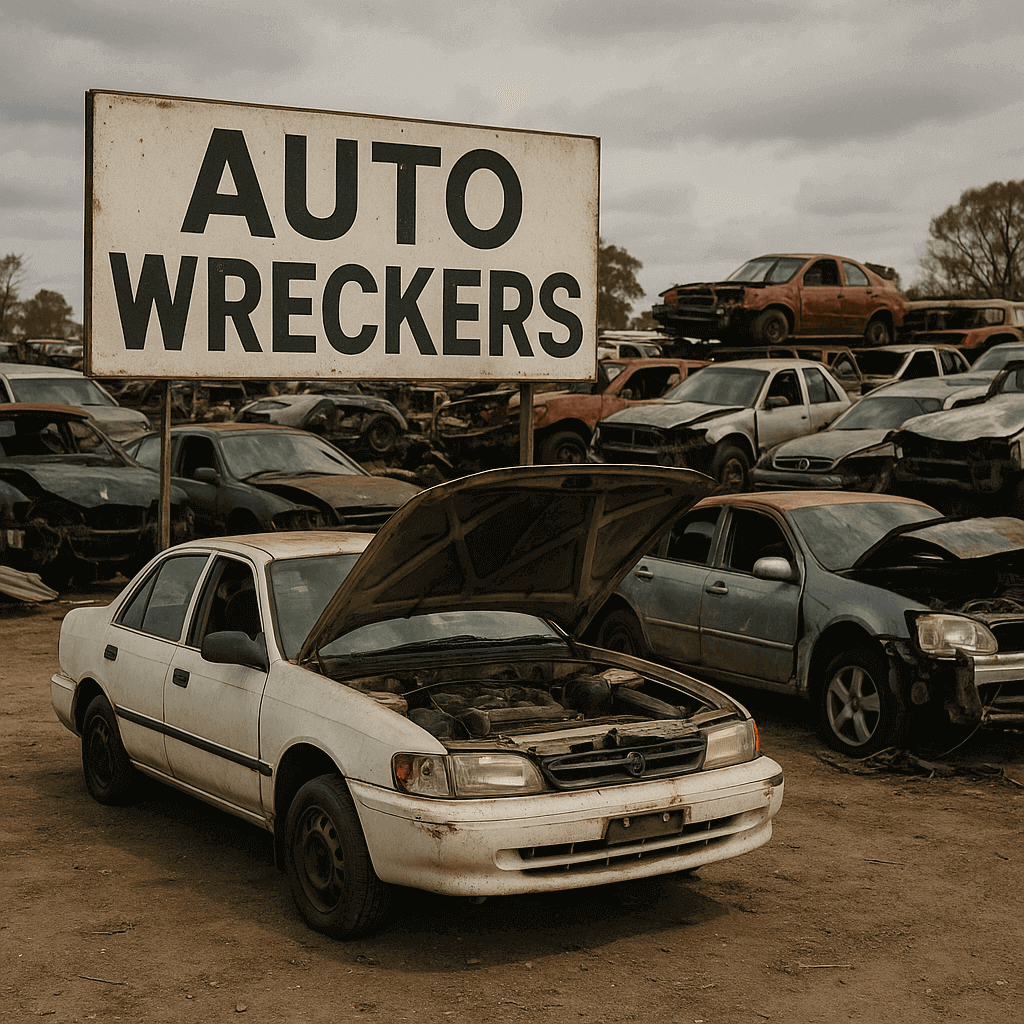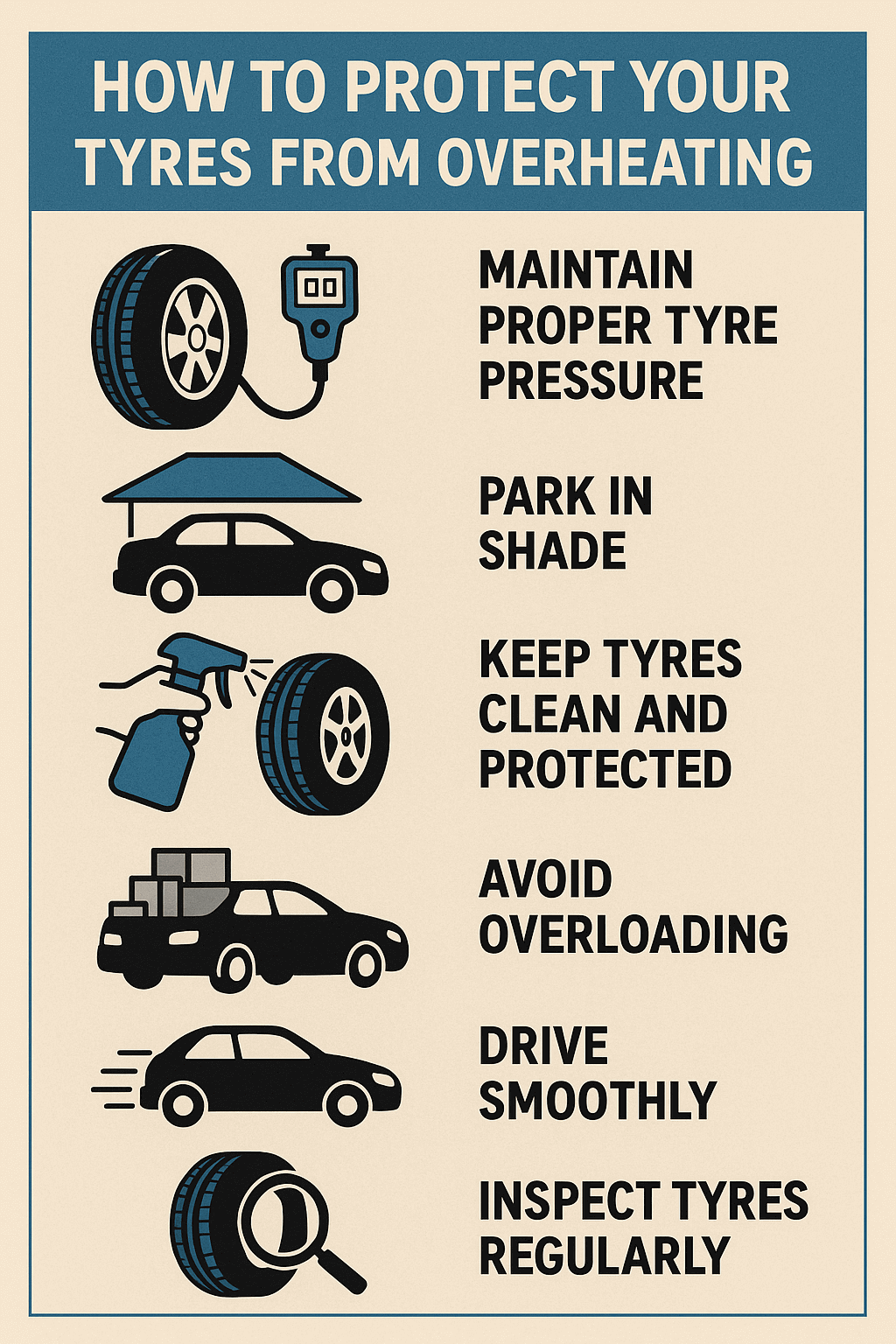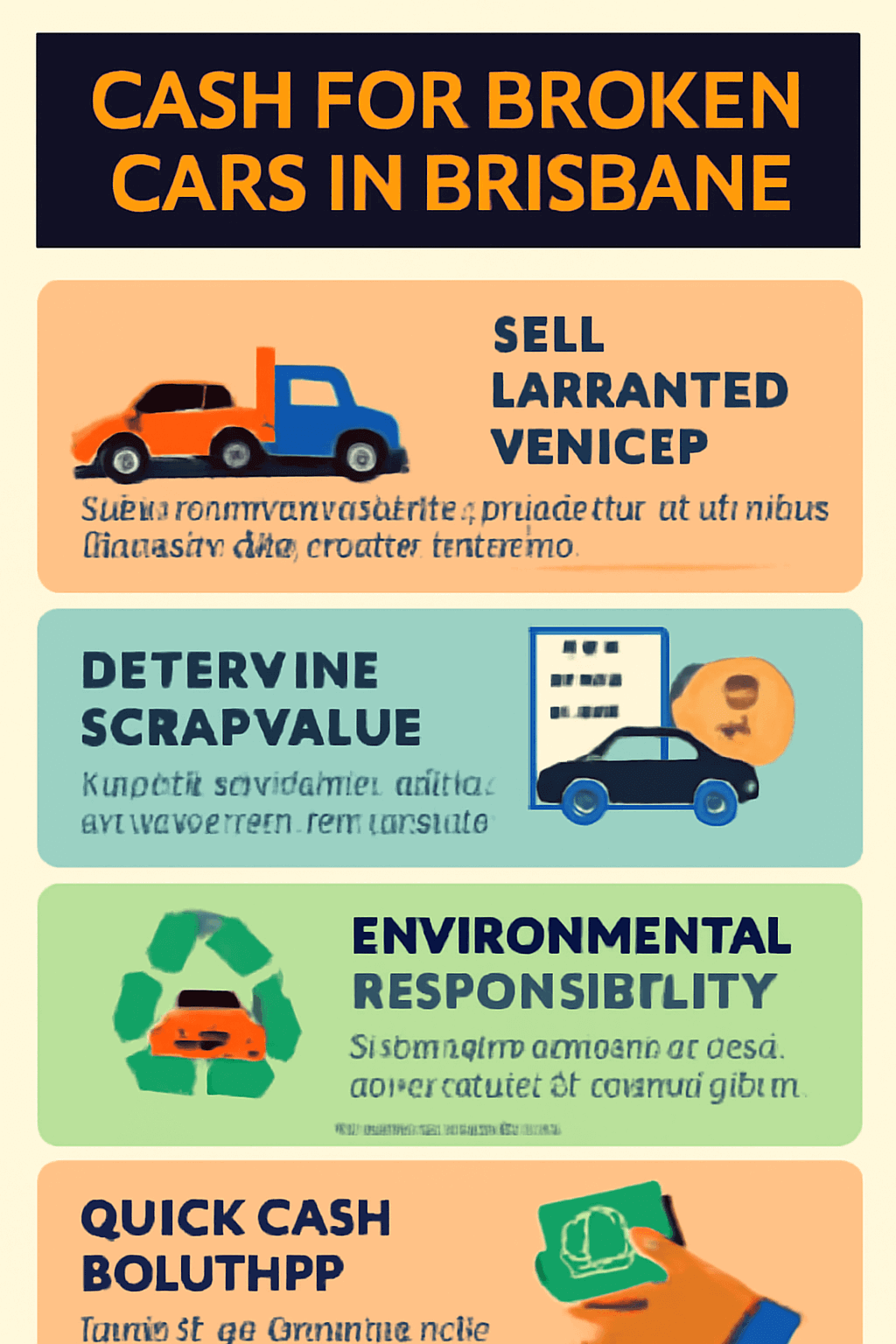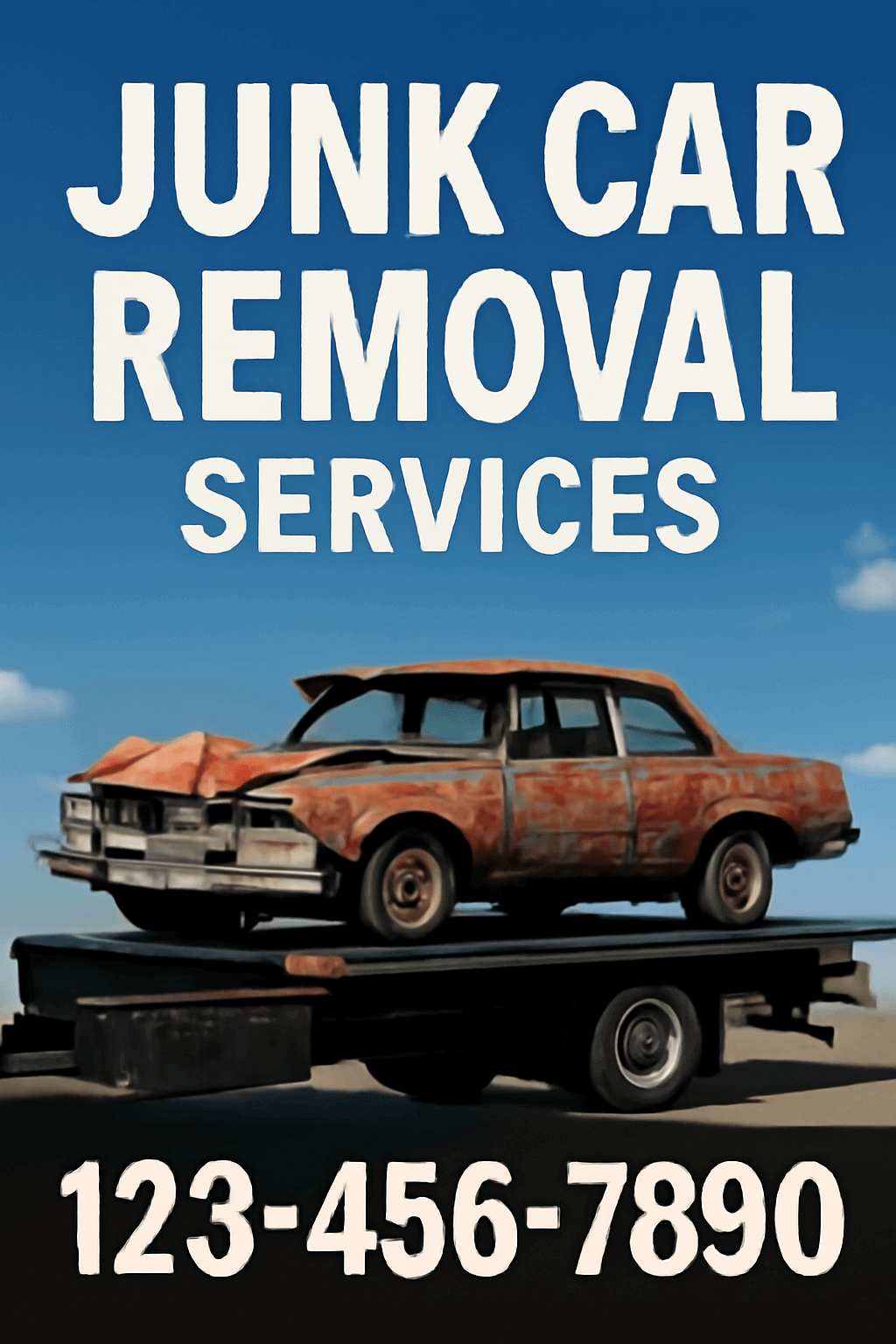Scrap my car with a wrecker
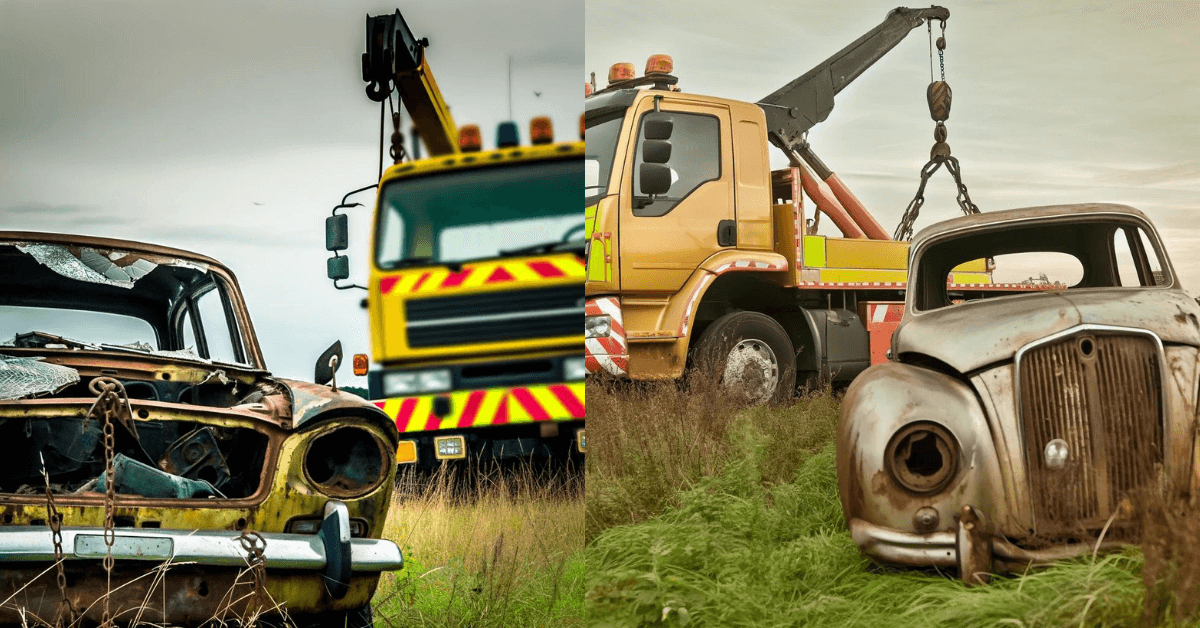
It might be intimidating to scrap an automobile, particularly if you need assistance determining where to begin or what options are available. Fortunately, professional car wreckers specialize in this process, making it easier and more convenient for car owners to dispose of their vehicles responsibly. This article covers all the details of using a wrecker to scrap your car, including the advantages, steps involved, and crucial factors to consider.
What is a Car Wrecker?
A car wrecker, an auto recycler or dismantler, is a professional service provider specializing in dismantling and recycling vehicles for parts and materials. These businesses have the know-how and resources to disassemble cars safely and effectively, salvage salvageable parts, and properly dispose of hazardous waste without harming the environment.
Benefits of Using a Car Wrecker
Environmental Impact
One of the primary benefits of using scrap a car wrecker is the positive environmental impact. Reusing vehicle wrecker services to recycle garbage contributes to a decrease in landfill waste and the demand for fresh raw materials. This conserves natural resources and reduces pollution and energy consumption associated with manufacturing new automotive components.
Convenience
Using a car wrecker is also incredibly convenient for car owners. Instead of navigating the complex process of selling or disposing of their vehicle independently, car owners can contact a wrecker service and pick their car up from their location. This saves time and effort while ensuring the vehicle is disposed of properly.
Financial Gain
In addition to the environmental and convenience benefits, scrapping a car with a wrecker can also provide financial gain for the owner. Owners usually anticipate receiving payment for their vehicle, albeit the amount offered for a destroyed vehicle can vary based on its brand, model, and condition. His can help offset the cost of purchasing a new car or cover other expenses.
How Does the Process Work?
The process of scrapping a car with a wrecker typically involves several steps:
Initial Assessment
The first step is to contact a reputable wrecker service and provide them with details about your vehicle, such as its make, model, and condition. Based on this information, the wrecker will offer you an initial quote and schedule a time for pickup.
Collection and Transportation
After everything is confirmed, a team from the wrecker will come to your place to pick up the car. They will then transport it to their facility for further processing.
Dismantling and Recycling
The vehicle will be carefully dismantled at the wrecker’s facility, and any reusable components will be salvaged. This includes parts such as engines, transmissions, and body panels. Any remaining materials, such as metal and plastic, will be sorted and sent for recycling.
Things to Take Into Account Before Selecting a Car Wrecker
When selecting a car wrecker, there are several factors to keep in mind:
Reputation and Experience
Choose a wrecker with a solid reputation and years of experience in the industry. This ensures they have the expertise and resources to handle the scrapping process efficiently and responsibly.
Environmental Practices
Seek out a wrecker that adheres to eco-friendly procedures, such as recycling regulations and the appropriate disposal of dangerous materials. This indicates their dedication to sustainable development and ethical business conduct.
Payment Terms
Ensure you comprehend the wrecker’s payment terms and how and when you will be compensated for your car. Avoid any wrecker that requires payment upfront or offers suspiciously high payouts.
Steps to Prepare Our Car for Scrapping
Before handing over your car to a wrecker, there are a few steps you should take to prepare:
Gather Necessary Documents
Ensure you have all the necessary paperwork for your vehicle, including the title, registration, and relevant maintenance records. This will streamline the scrapping process and ensure that everything is in order.
Remove Personal Belongings
Give your automobile a thorough cleaning and ensure any personal items are gone. Inspect every space encompassing the glove compartment and trunk to ensure nothing crucial is overlooked.
Clear Out Fluids and Hazardous Materials
Before the wrecker arrives, drain fluids from your vehicle, such as oil, coolant, and gasoline. You should also remove any hazardous materials, such as batteries and airbags, and dispose of them properly.
FAQs
After your car is scrapped, it will be dismantled, and any reusable parts will be salvaged. The remaining materials will be sorted for recycling, ensuring that as much of the vehicle as possible is repurposed.
Yes, most wreckers accept vehicles in any condition, including those that are not running or are damaged. However, you may receive a lower payout for a non-running car than one in working condition.
The amount you can receive for scrapping your car depends on various factors, including its make, model, condition, and current market value for scrap materials. It’s best to contact a wrecker for an accurate quote based on your specific vehicle.
Yes, there can be rules and specifications based on where you live and the particulars of your car scrapping situation. Researching and complying with applicable laws is essential to ensure a smooth legal process.
Many charities and nonprofit organizations accept donated vehicles, which can then be sold or scrapped to raise funds for their programs. This can be a viable option for those looking to support a charitable cause while disposing of their old car.
Conclusion
Using a wrecker to scrap an automobile is a practical and eco-friendly way to eliminate unwanted or outdated cars. You may guarantee a hassle-free and easy process while contributing to environmental preservation by selecting a reliable wrecker and taking the required actions to prepare your car for scrapping.

